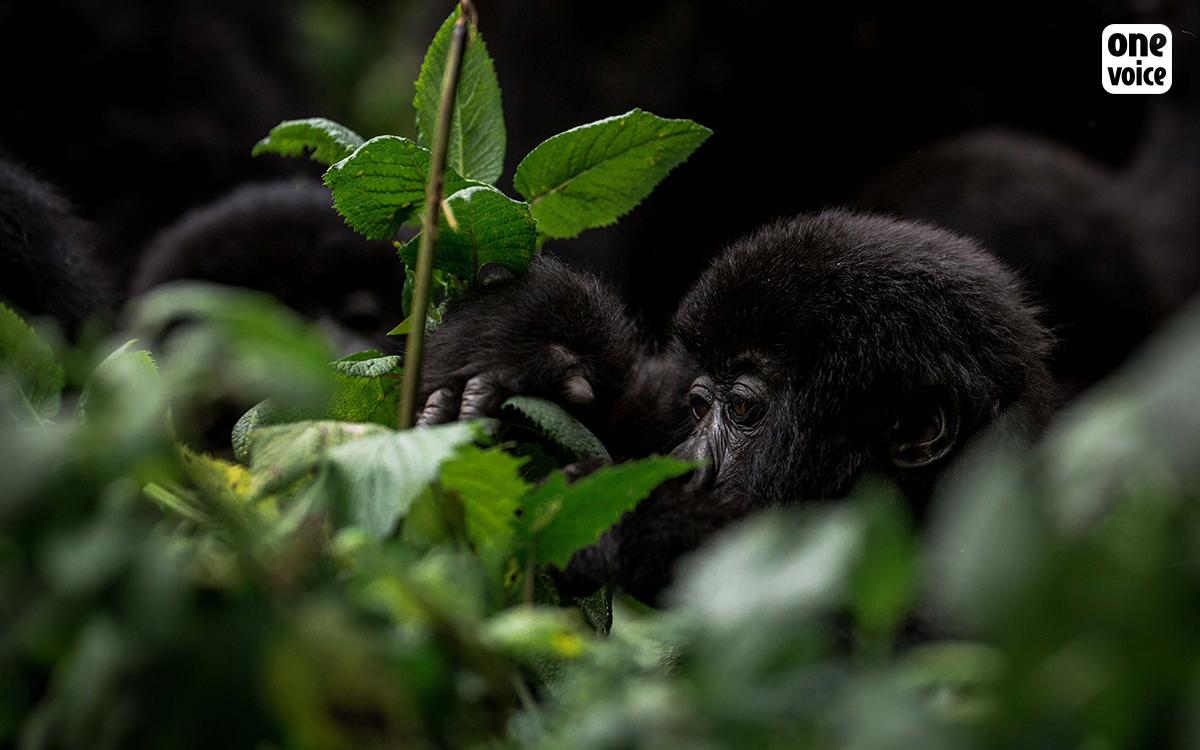

Rwanda: wildlife and its many facets
Nestled in the heart of Africa, between the Congo, Sudan, Kenya, Tanzania and Rwanda, areas well known because of the terrible genocide that occurred in 1994, when nearly a million members of the Tutsi ethnic group were massacred over a few months. What is largely forgotten is the richness of the wildlife of this small country in Central Africa, in particular its mountain gorillas clinging to the slopes of the Virunga mountains. These gorillas were highlighted by the primatologist Dian Fossey, but also its lions, giraffes, rhinoceros, elephants, wild dogs, antelopes … So many of these animals have suffered from the madness of men.
A revival, in pictures
Mathieu Courdesses, a young photographer whose work we support on wildlife and in particular his Photogr’Afrique project, completed whilst in Rwanda. He is indeed always in search of wild places to go where he will witness by the use of his images the conditions of life. He has even witnessed survival and fatalities, he is a committed actor, working towards the preservation of the environment.
From his last trip to Rwanda (Akagera Park, Volcanoes Park, Nyungwe Forest, Ahazaza School), Mathieu brought back a report which is full of promise. He saw zoological parks equip themselves with personnel (rangers, trackers or veterinarians), armed to restore viable and healthy ecosystems. There are wildlife sanctuaries that are recreated to include African animals and open to eco-responsible tourism, carried with ambition by a new local political class, especially women and which benefits local communities.
A New Logic
“Today, they are bodyguards for the gorillas and the government offers them at a fixed salary, offering the possibility of staying legal and also preserving their environmental heritage,” says Mathieu. He talks about former poachers, who understand that ecological tourism redistributes more sustainable income here than the mere price of bushmeat. This help revitalizes the attractiveness and strengths of an entire ecosystem. Here and this is rare, it is a question of dialogue between actors, the understanding of the issues, real animal knowledge…
Threatened yesterday by extensive tea plantations munching on the Nyungwe forest, the chimpanzees and colobus monkeys now seem to coexist as equals with local farmers, eco-friendly lodges allowing them to come and mix with them, to develop a new wealth, which is no longer plundered, even if it remains rare.
Then there is education: in Ahazaza, in one of the schools in the country of a thousand hills, Mathieu shared his images and his emotions with the children: he felt the powerful bond of love and pride that unites these young locals to the wildlife around them, this is the same bond which made Patience who he is, one of Mathieu’s field guides who expressed this very touching confession: “Gorillas are our brothers.”
Proud to do something…
The promotion of tourism to this battered Central African country must take different paths and this is currently the case. This is how the use of unprecedented means will allow its wildlife to flourish again tomorrow, in islands of rediscovered peace. We give everyone the opportunity to see the images brought back by Mathieu from his reports (stories on Instagram), which also contribute to the preservation of wild life, by testifying to its beauty, its rarity, its fragility… Please support these Steps!